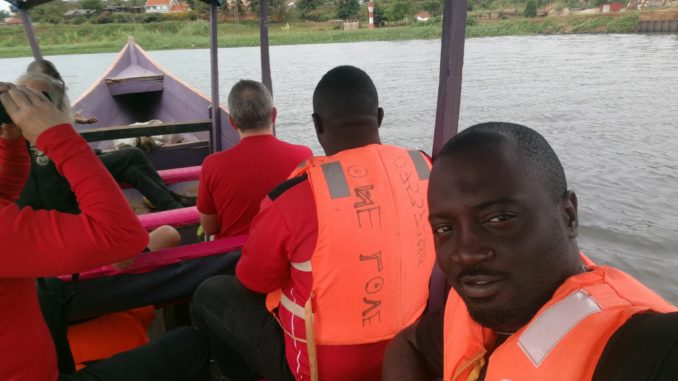
Initial Visit to the Nile Source
Around four o’clock that evening, I left my room to see Jinja town and what the locals looked like. Fortunately, a staff of the hotel, Chris was available to answer all my questions and even suggested places I could go that evening to see a few things a visitors would delight to see. With him that evening was another guy Amos whom he told me would take me around the town on his motorbike for a token if I was interested, an opportunity I grabbed with both hands.
Amos has a boda-boda, which is to say a motorbike he uses for business around town. He knew almost everyone and everywhere around town. We took a ride on his bike to the local market. He showed me different places in the town of special interest. The most exciting of all these was a gigantic Hindu temple. This temple was well decorated and it was the first time I would see a Hindu temple of that magnitude on an African soil. It reminded me of President Idi Amin Dada, a onetime president of the country who had ordered all foreigners of British, Indian and middle-eastern origins to leave Uganda. Idi Amin’s action even though was in good faith took Uganda backwards economically. Successive governments in the country has however allowed these foreigners to return to Uganda.
On arrival at the market, I got a few things I would eat that evening. Some locally made juice otherwise known as passion juice packaged in a transparent polythene bag which sold for 1000UGX. A piece of cake and a bottle of water. I now decided to find out the prices of a few things in the market and compare it to the price of things to prices back home in Nigeria and elsewhere. Prices in Jinja was almost same as in Lagos, but a few things were cheaper. I jokingly requested I wanted to buy ginger, a spice used to cook that has the exact name as this town. Funny enough, they had it, even though their Lusoga ascents pronunciation made the ‘ginger’ sound differently.
Leaving the market, we went back to the hotel to drop the few things we had bought. In all, Jinja happens to be one of Uganda’s business hubs. The city was built by the colonial government and even up till date, there exist some colonial buildings there with their histories. The building where The English Queen stayed in for instance was still standing. There is an ultramodern market, a local beer factory and a sugar cane factory. The city has a local power station built in a nearby town which powers most of the companies around there.
Jinja happens to also be a popular tourist destination. It is believed the River Nile (White Nile) originated from there. Tourist flock here to discover the source of the Nile, do white-water rafting and then tour Lake Victoria. I observed a lot of white foreigners live there also with their families. Geoffrey my tour guide also told me a story about His Excellency, Paul Kigame of Rwanda who grew up in Jinja at a time, of how he once took a boat ride to Jinja after he had become president to visit the people he grew up with. It was told that on his arrival, so many could not believe their eyes seeing him. He even reached out to very old friends, who were his mates but were not very fortunate like him. He stayed a couple of days in Jinja before leaving back to his Kigali.
Return from the market, Amos and I made a trip to the Source of the Nile River. Normally, one can enter this place from Lake Victoria without making any payment to officials but Amos erroneously took me to this main entrance due to the fact it was late and other tourists who would go in via the Lake Victoria entrance have all gone back to their hotels. At the entrance, the security officials demanded for a 30000UGX entrance fee which I eventually negotiated it down to 10000UGX. They allowed me in without a receipt, meaning someone will be pocketing the money.
Moving from there, it was surprising to see a few other tourists whom were obviously from Uganda – I could tell because they all spoke in the same local dialect and they were black. I negotiated a boat ride for 5000UGX with these other tourists and we did a 15-minute tour in the Omugga Kiyira, the local name for River Nile. We visited the point where it is believed the Nile originated from. This point is just at the mouth of the Lake Victoria. It is believed there is an upsurge of fresh water from beneath that point and in addition to the fresh water from the Lake Victoria empties itself into the River Nile (White Nile) to create the longest river in Africa – in fact many Ugandans and Africans dispute this. They claim it is the longest river in the world, an argument the Brazilian Government disagrees with. Brazilians believe that Amazon River is longer than the Nile or any other river in the world. It may however interest you to know that if the entire area of the entire drainage of the River Nile is considered, it is most likely the longest and one the biggest in the world as it covers over 3.2 million square kilometers which is almost 10% of the African continent.
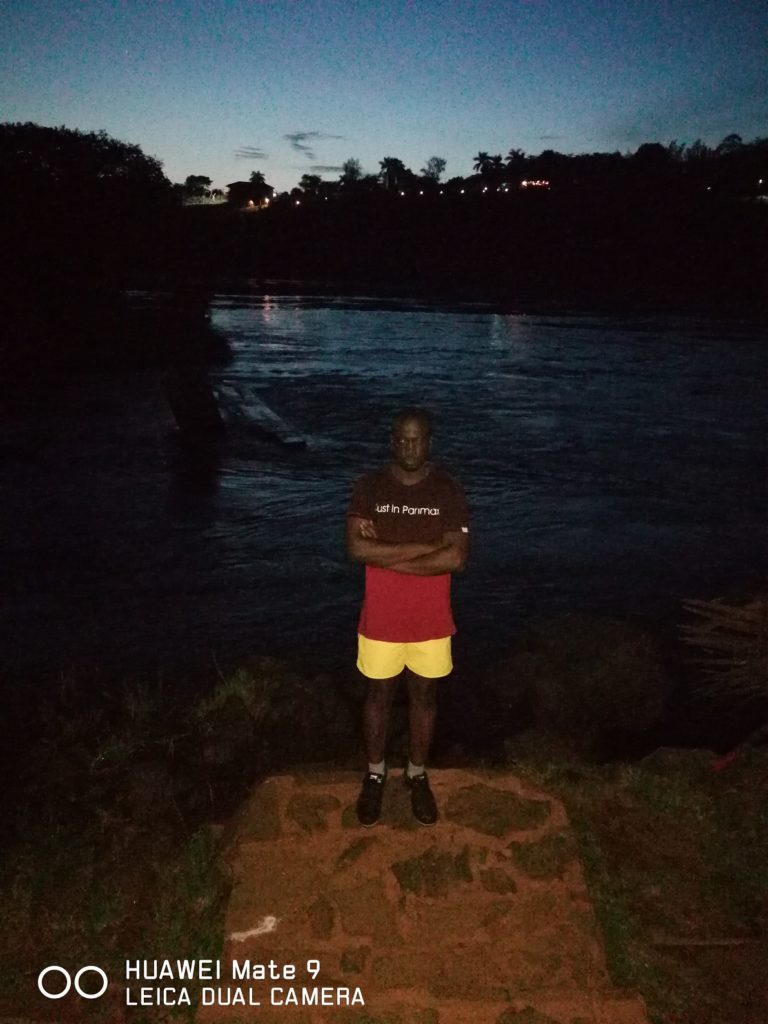
On the Banks of River Nile 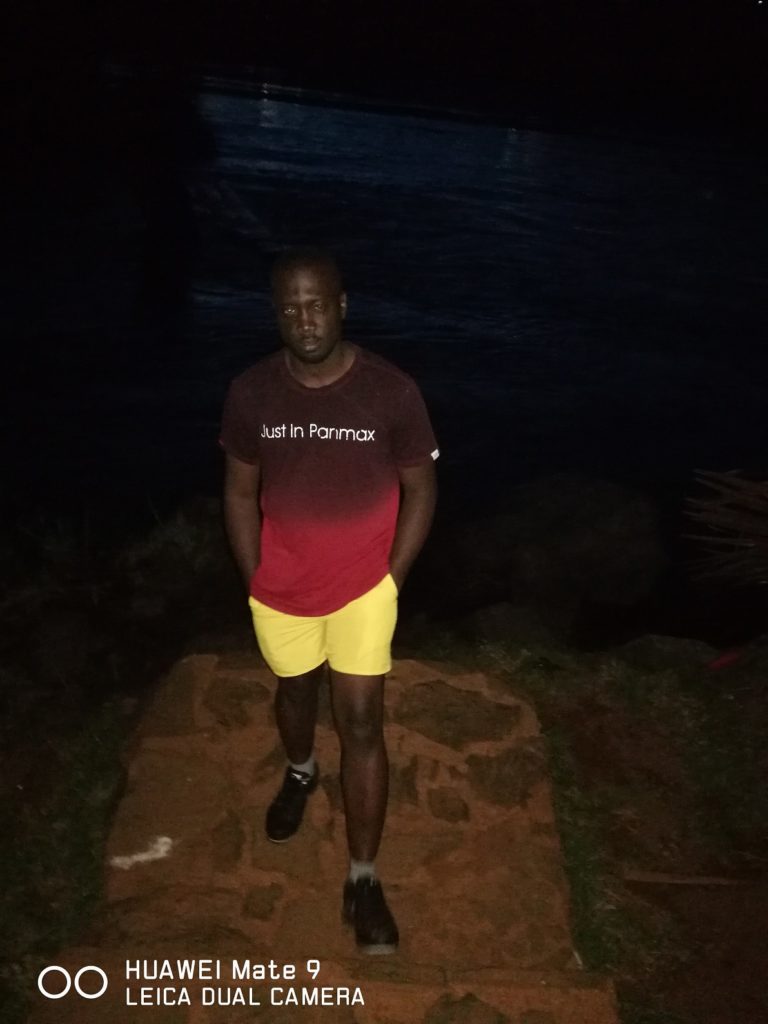
On the Banks of River Nile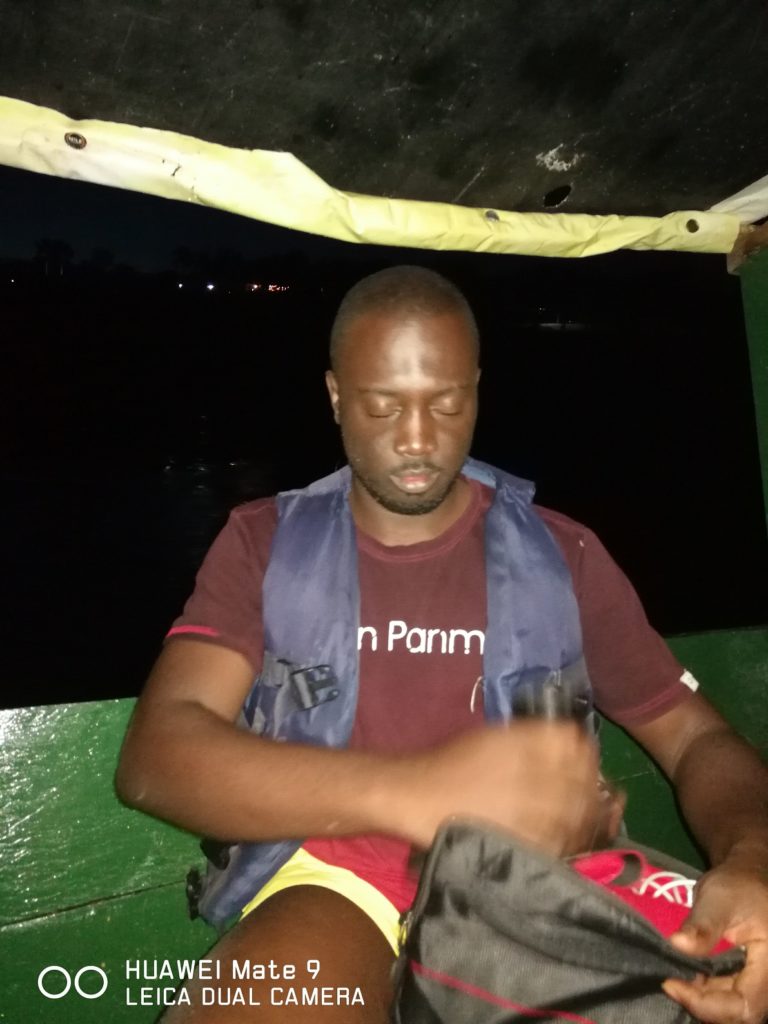
Sailing River Nile 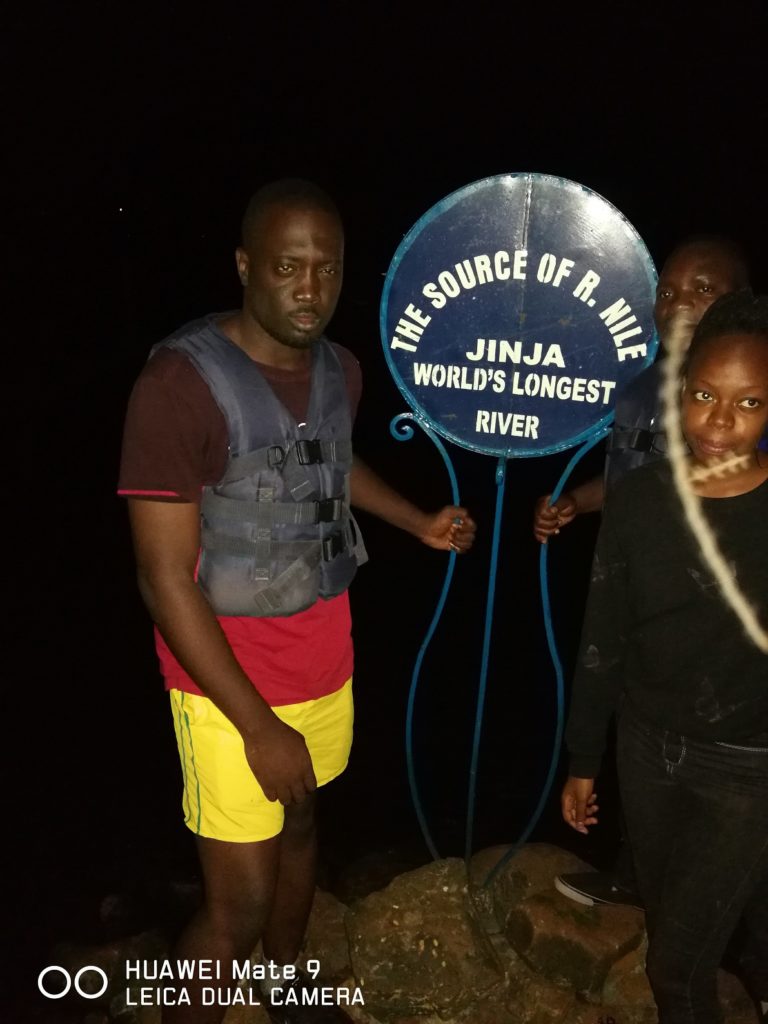
At the source of the River Nile with another tourist 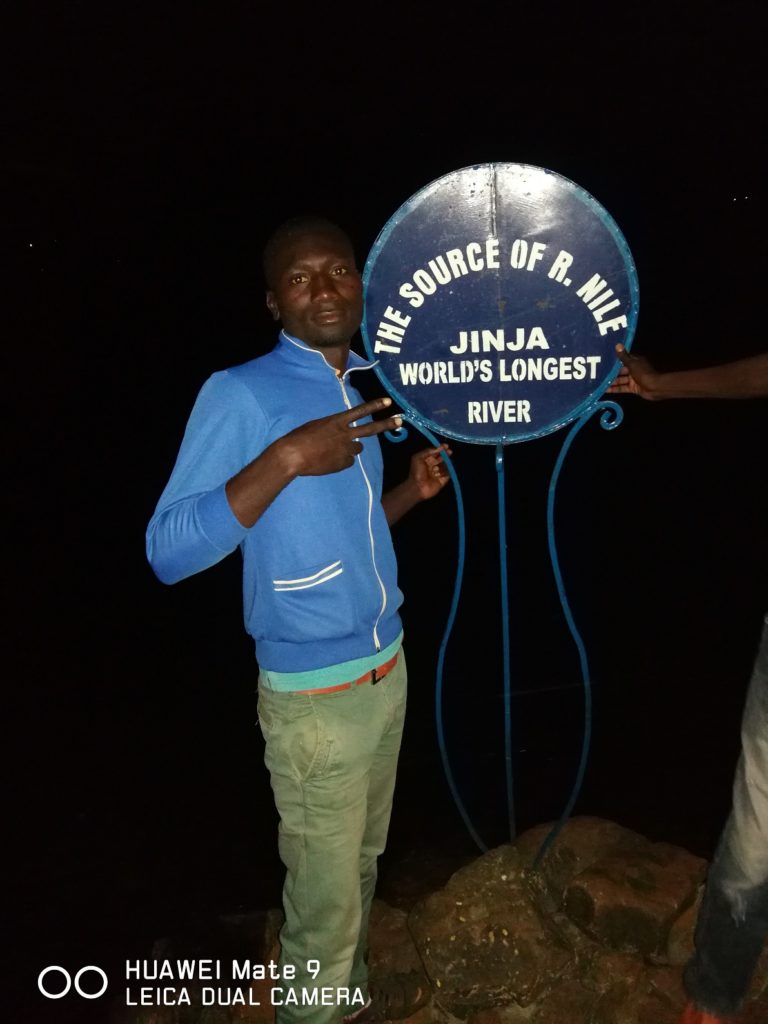
Amos at the Source of the Nile. He drove me down to this place. 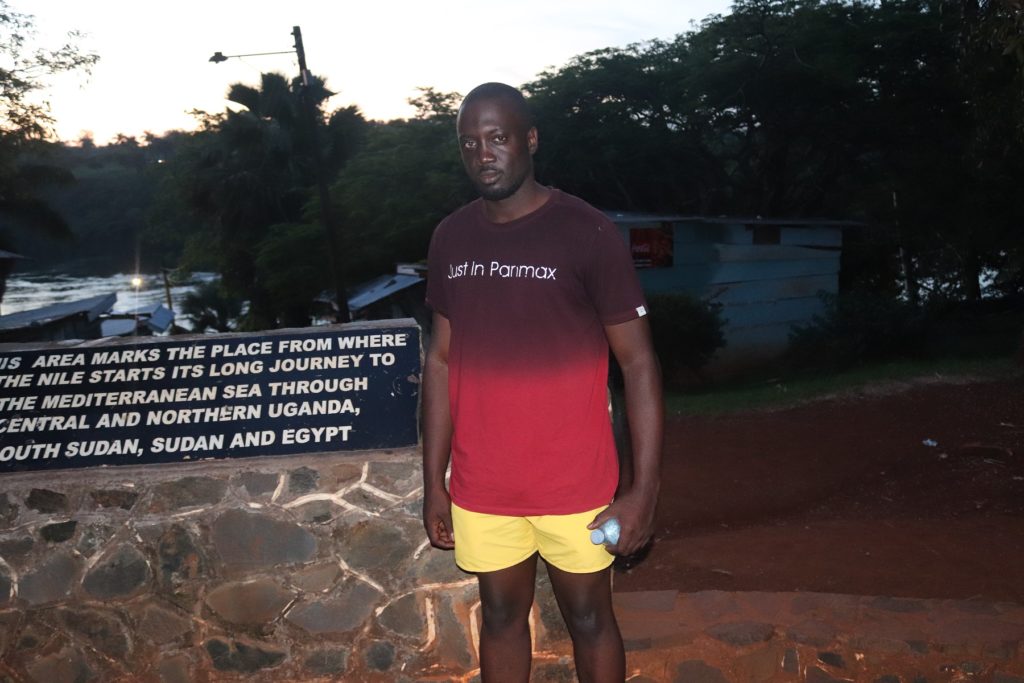
At the entrance to the River Nile 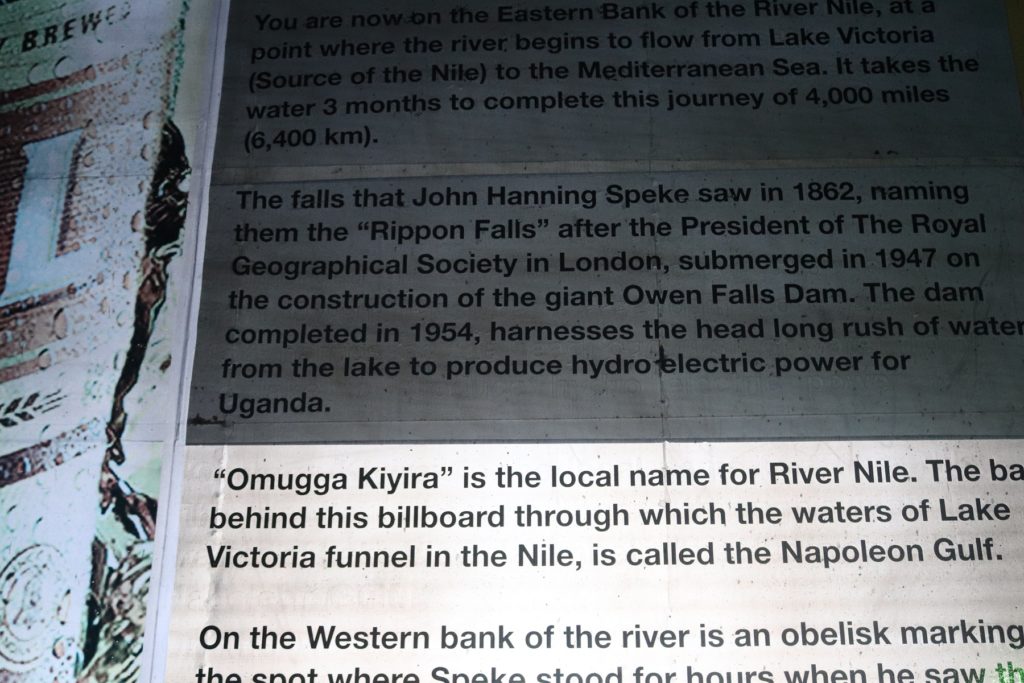
The River Nile write-ups 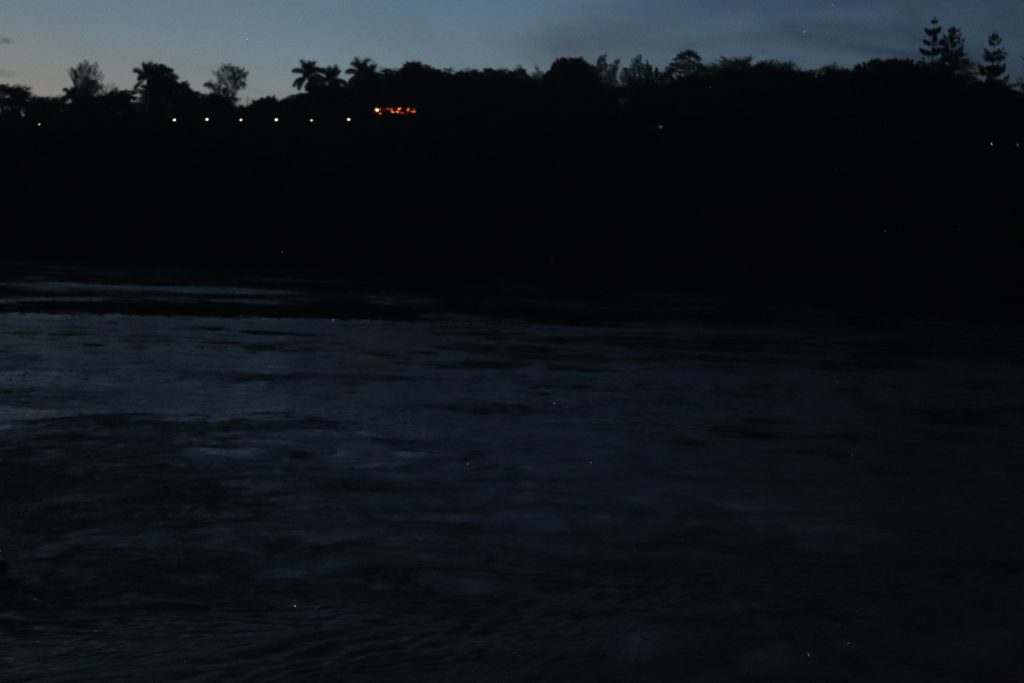
The River Nile 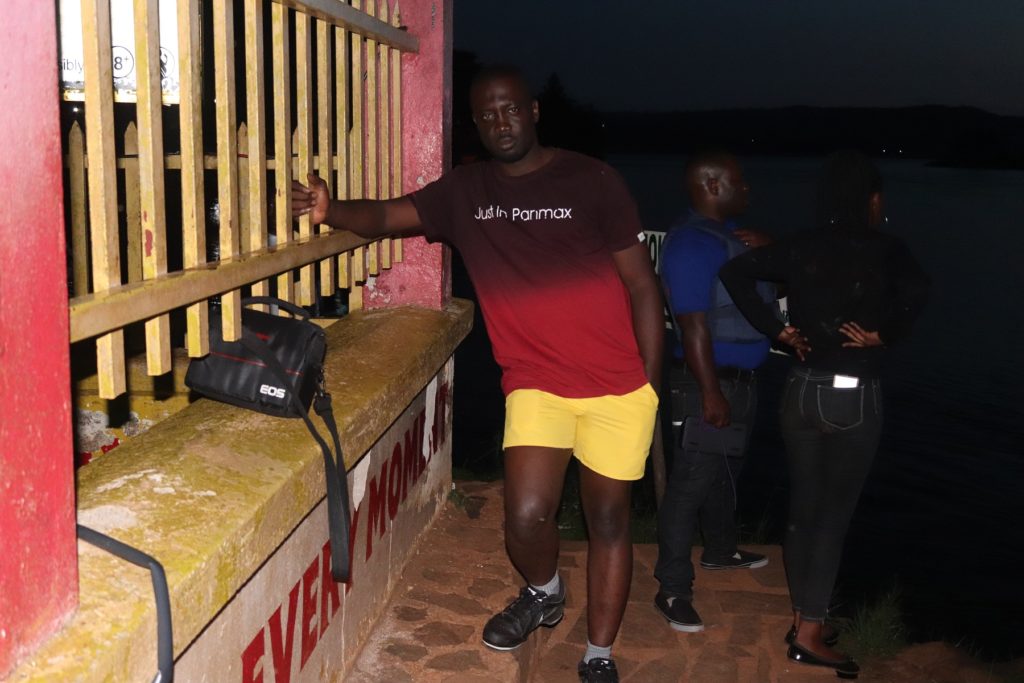
The River Nile 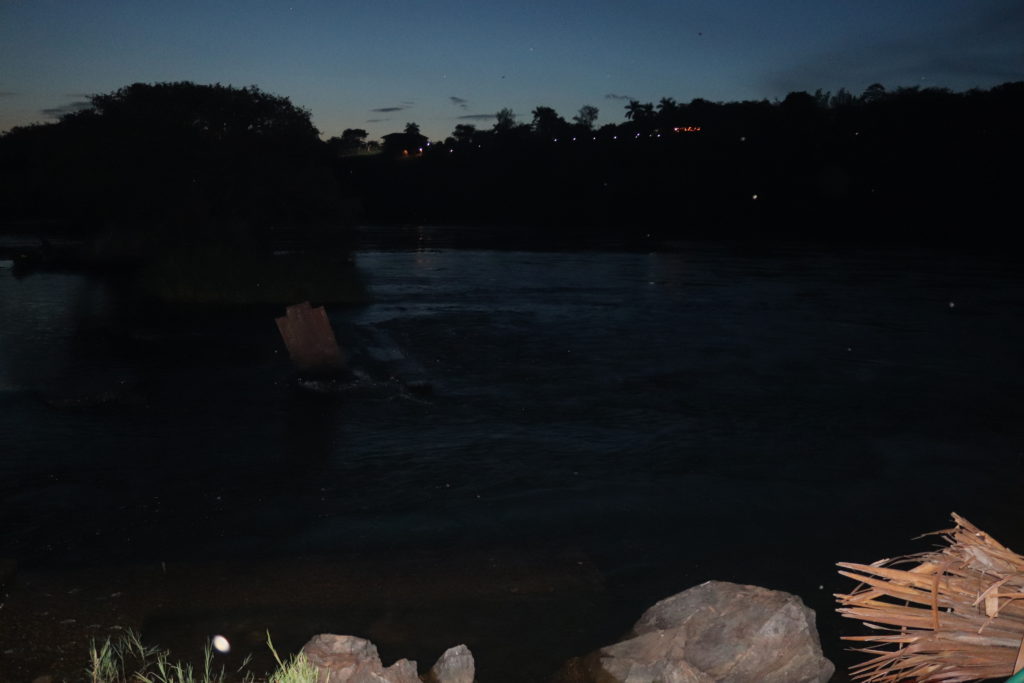
The River Nile 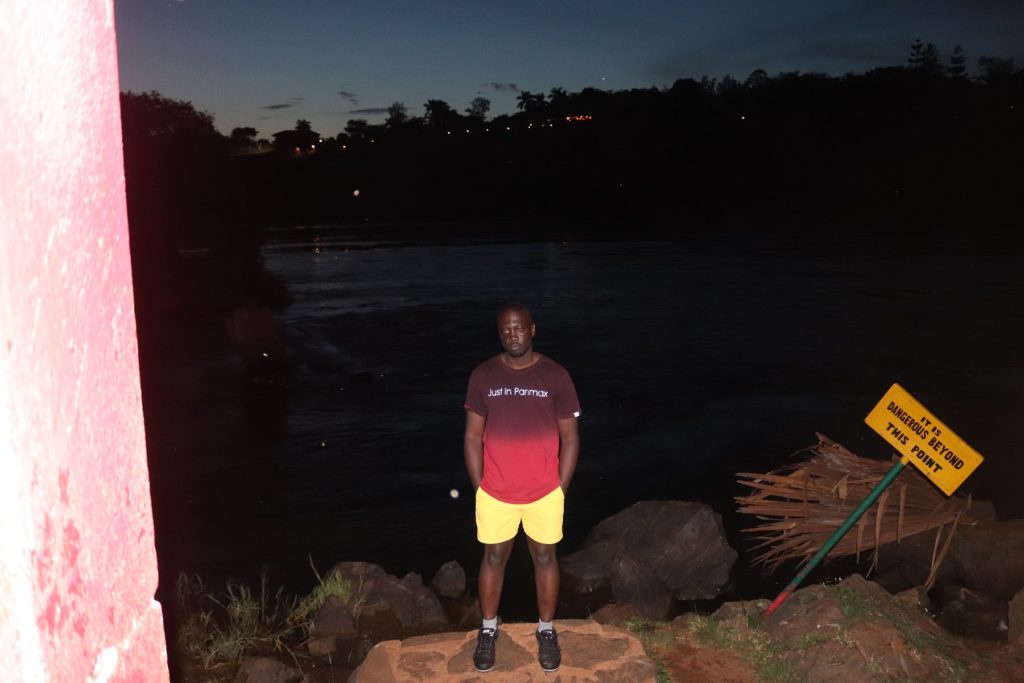
On the Banks of the River 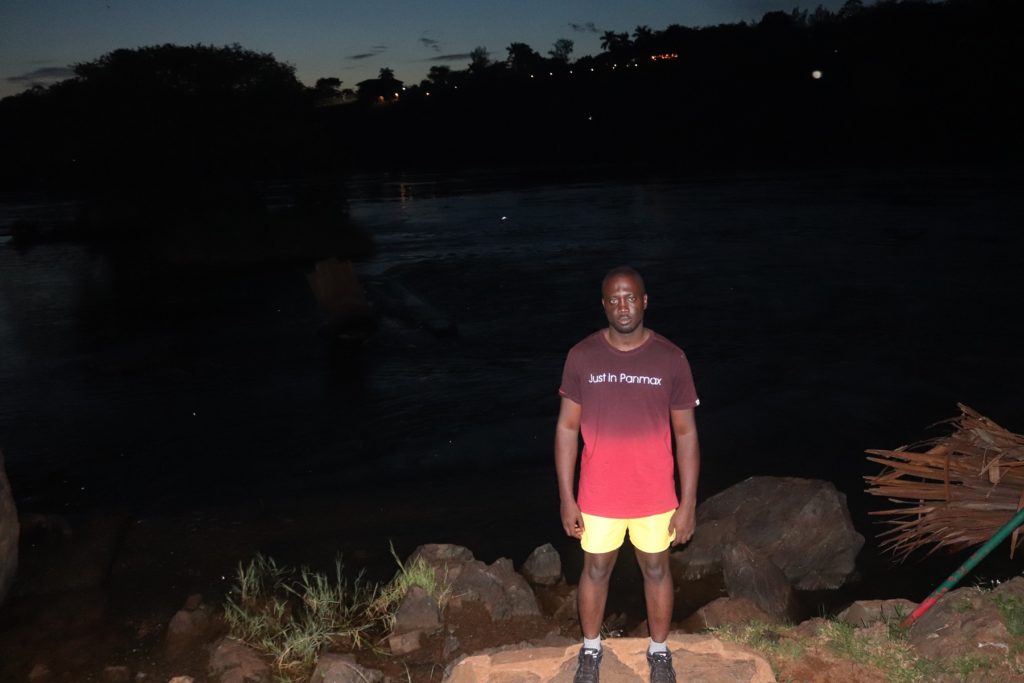
On the Nile Bank
The Nile Conflicts
Lets note that the Nile is a very important source of water to most of the countries it passes through especially those in the Northern Africa. In Ethiopia for instance, the government started The Grand Ethiopian Renaissance Dam or otherwise known as the GERD in the Blue Nile tributary of River Nile. The project hopes to at completion generate 6000 Megawatts of electricity which is likely the highest amount of power generated in an African dam. Ethiopians and their government see this move as a way of lifting citizens out of poverty. The Ethiopian government encourages civil servants to buy bonds worth a month’s salary in a year in order fund this magnificent project. Ethiopian peasants are encouraged to buy bonds in order to fund this project which costs as low as five US dollars. Experts however argue that this project is too ambitious due to the fact that low volume of water that flows in the Nile River may not be able generate the much power expected. They estimate that out of the 6000 MW hoped to be generated and then exported to other countries, only 3000MW will be feasible.
Egypt on the other hand depends on the River Nile as the major source of water to the country. This construction by Ethiopia is considered by the Egyptian government as an attack on the sovereignty of Egypt as a nation and a deviation on the Nile Agreement which handed Egypt control over the Nile River waters. This agreement was done in the colonial era and most countries in the Nile basin does not recognize this agreement as it almost did not take their interest at heart.
The construction of this dam by Ethiopia has sparked a new wave of conflict in the region and both sides have been threatening to go to war to have their interest protected. Egypt needs the water to irrigate their farms and for fishing while Ethiopia needs it to generate electricity. Sudan, which lies between the two countries and would easily take sides with Egypt or Ethiopia seems to be happier with what Ethiopia is doing as it would create more water for irrigation in Sudan and the country would also benefit from the power project on completion. At the moment, Sudan is attempting to meditate in the situation.
Talking about Hydroelectric power generation in the continent, if Africa could harness the potentials of the River Congo, there could be enough power for the entire sub-Saharan Africa. Experts has predicted that the River Congo has the potential to generate enough electricity if harnessed properly.
Our Nile tour ended and I was dropped off at the hotel by Amos in his boda-boda (motorbike). Geoffrey, the main tour guide I had met earlier in the day introduced me to another tour guide named Joe who would be taking some tourists on a Lake Victoria and River Nile tour the next day. I had introduced myself as a tourist and a tour guide to them, hence they were very lenient with charges.
The Fishing Village Near Lake Victoria
The next morning, I was ready to leave for the tour. Joe and his clients were ready around 10 o’clock. The tourists were from the United Kingdom – three of them in all. I introduced myself that I am a tourist from Nigeria. Coming on-board the boat, I noticed they had probably made a booking for just them but Joe just wanted me to take advantage of the opportunity – a gesture I was grateful for.
We initially sailed to a small fishing village across the Lake Victoria. The people here were mostly fishermen and farmers. It was told that most of the young men preferred to become fishermen than going to school, this is because they argue that they make money going fishing and that going to school takes a longer time to graduate. The girls on the other hand process these fishes the men catch at night and goes to sell them in the local market. Every nook and cranny was littered by the so called Silver Fish (known as
mukene locally) where they are exposed to dry. This fish is tiny and is rich source of Omega 3 protein. They are also employed in making fish meal and it also plays a very important role in the local diet. I never got to have a taste of it but I was told it was good.
We toured the local fishing village on foot, leaving our boat at the shores. The villagers were kind and nice. Children were very excited to see us especially one of the tourist, Chris who had long beards. At a point some adults came to greet us and requested for permission to touch Chris’ beards.
We left the village and continued our tour on the rest of the lake. We noticed caged aquaculture farming. Farmers grow tilapia here and there were a number of such installations in the Lake. There were also different varieties of birds and other animals in the Lake. There were a lot of things to see before we returned to source of the Nile. It was a good time sailing with Joe and these tourists – Joe is quite knowledgeable about everything. He answered all the questions we threw at him satisfactorily and I would recommend you tour Jinja with him if you intend visiting. When I asked Joe what I would pay for this tour that took almost three hours, he told me I should pay whatever I could afford! A good man he was indeed!
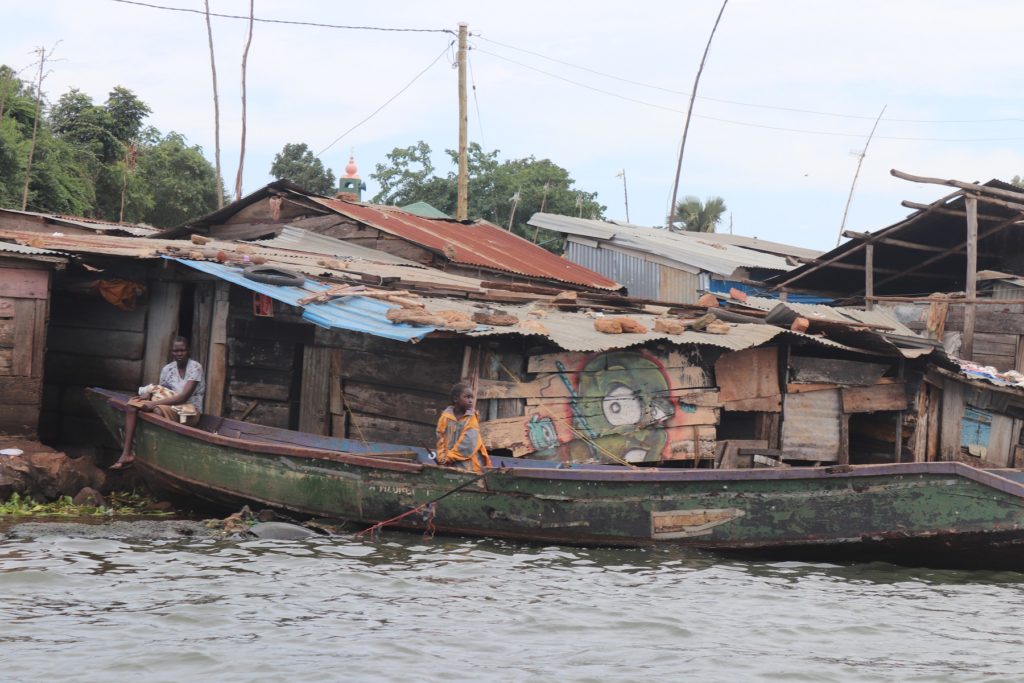
A family living at the Nile Bank 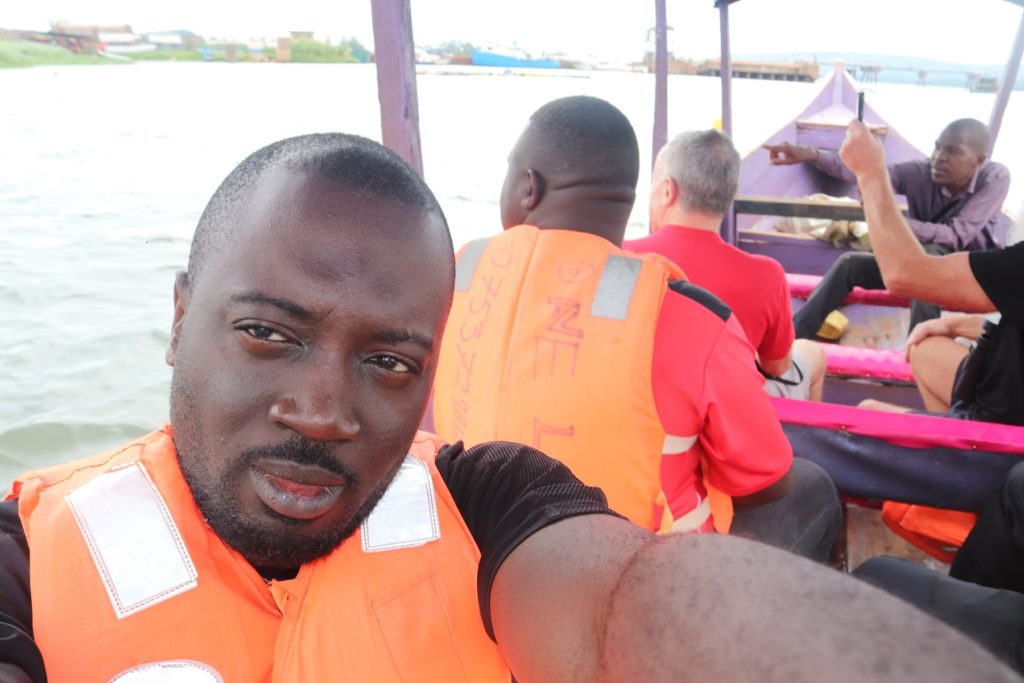
In the tour boat 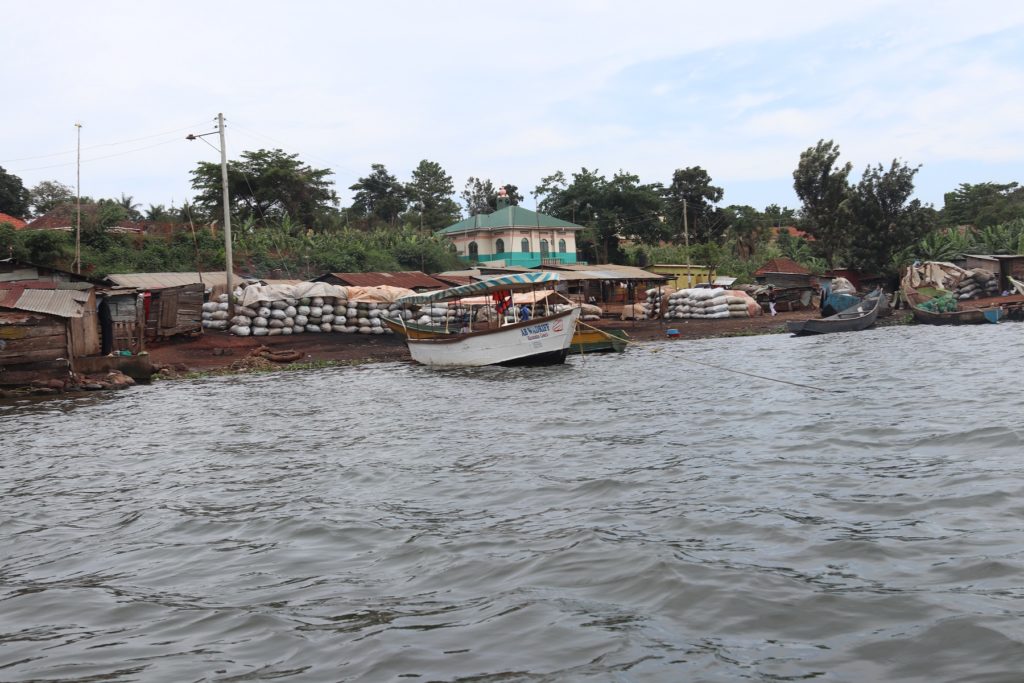
Transportation on Lake Victoria 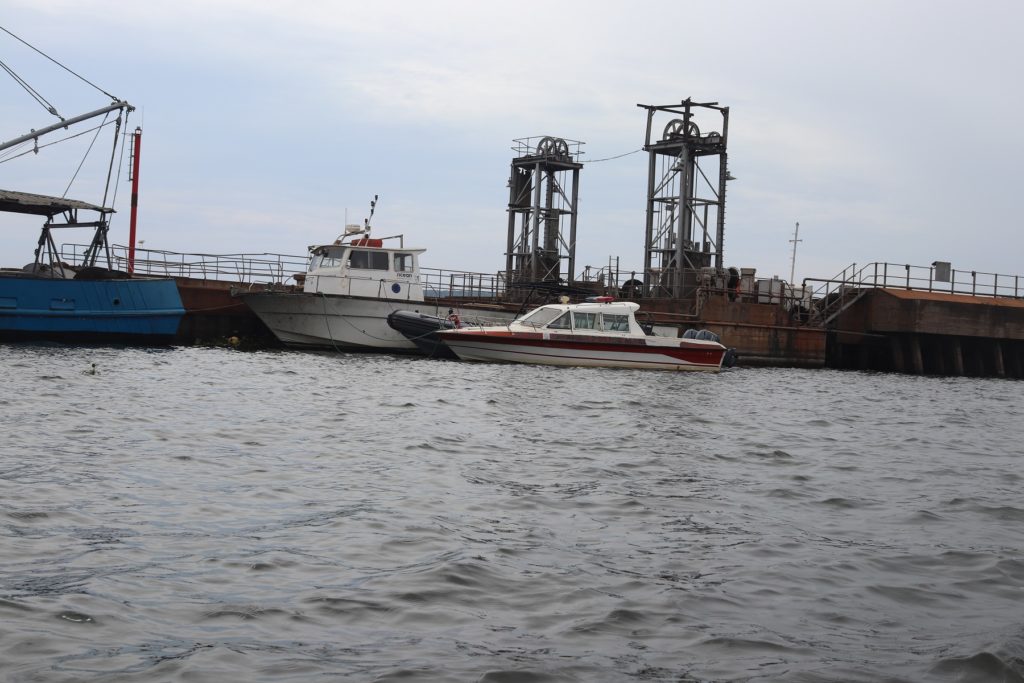
Ships and vessels on the Lake Victoria 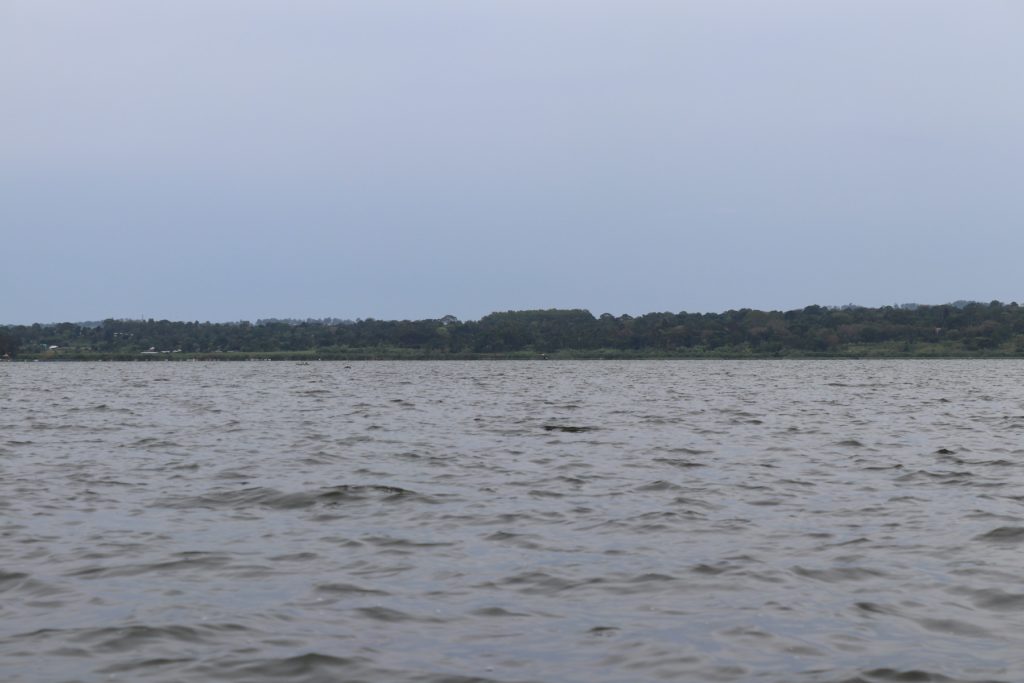
Lake Victoria 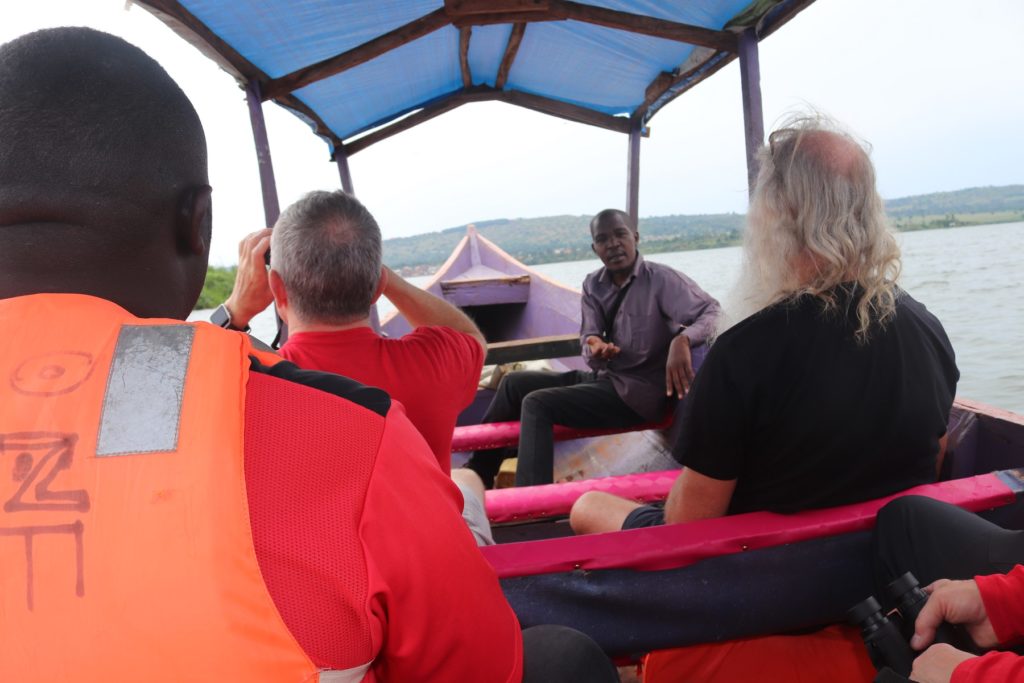
The tour team. Joe is telling a story 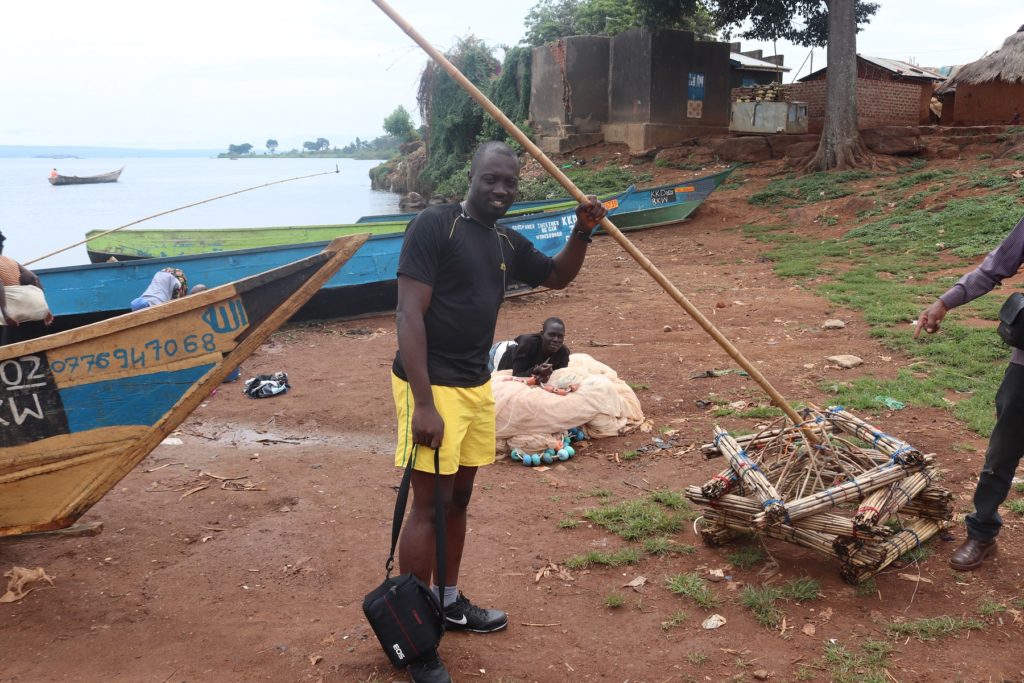
Me with a fishing equipment on the Lake Victoria 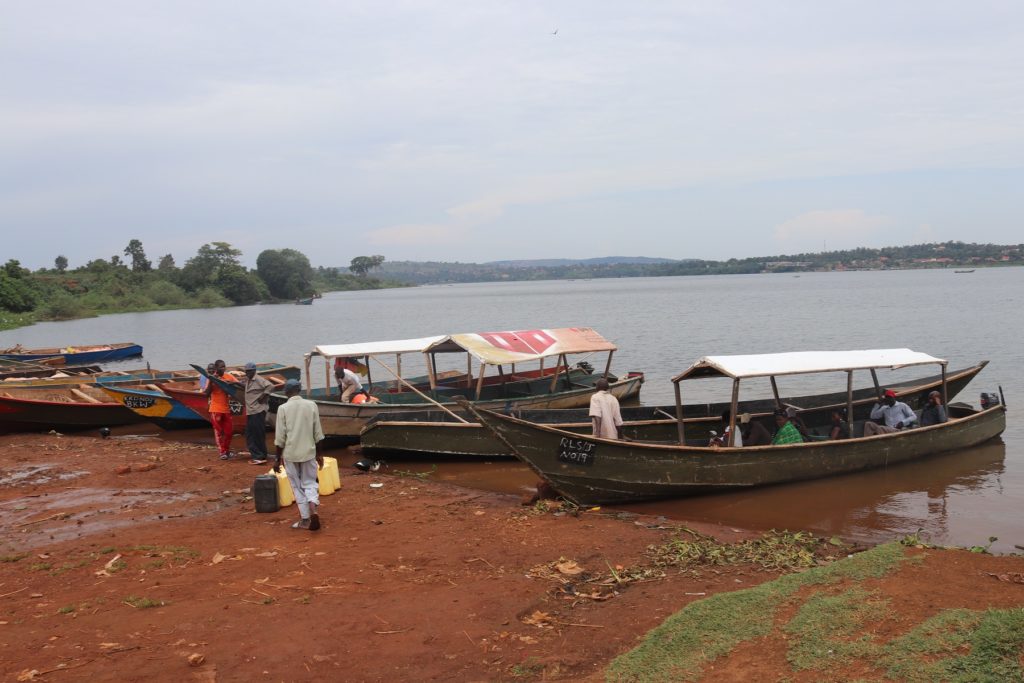
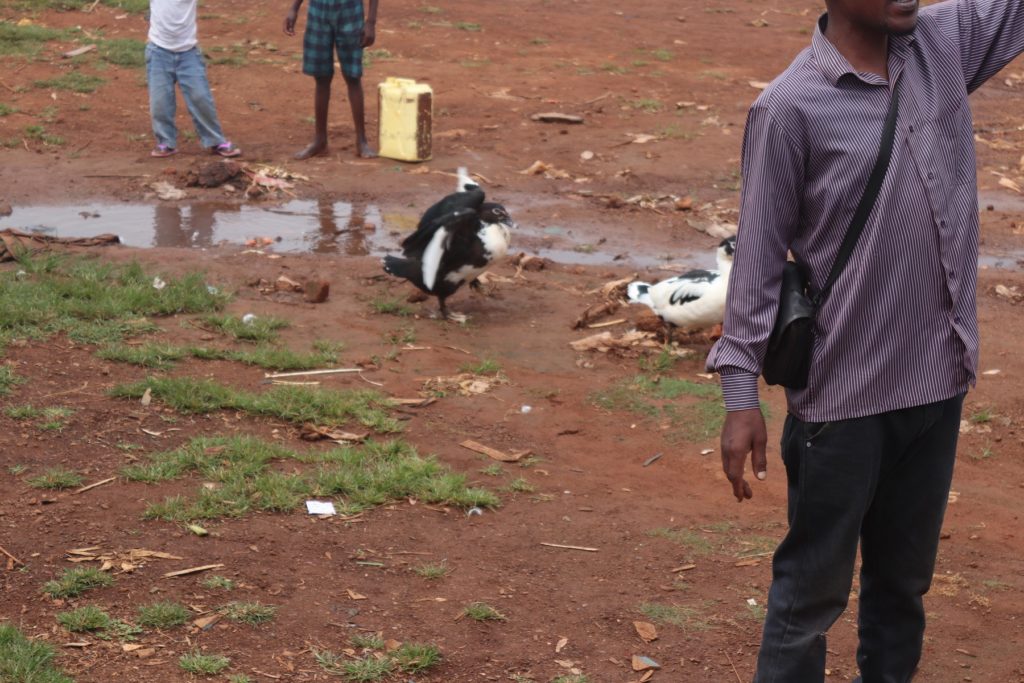
Joe, the tour guide 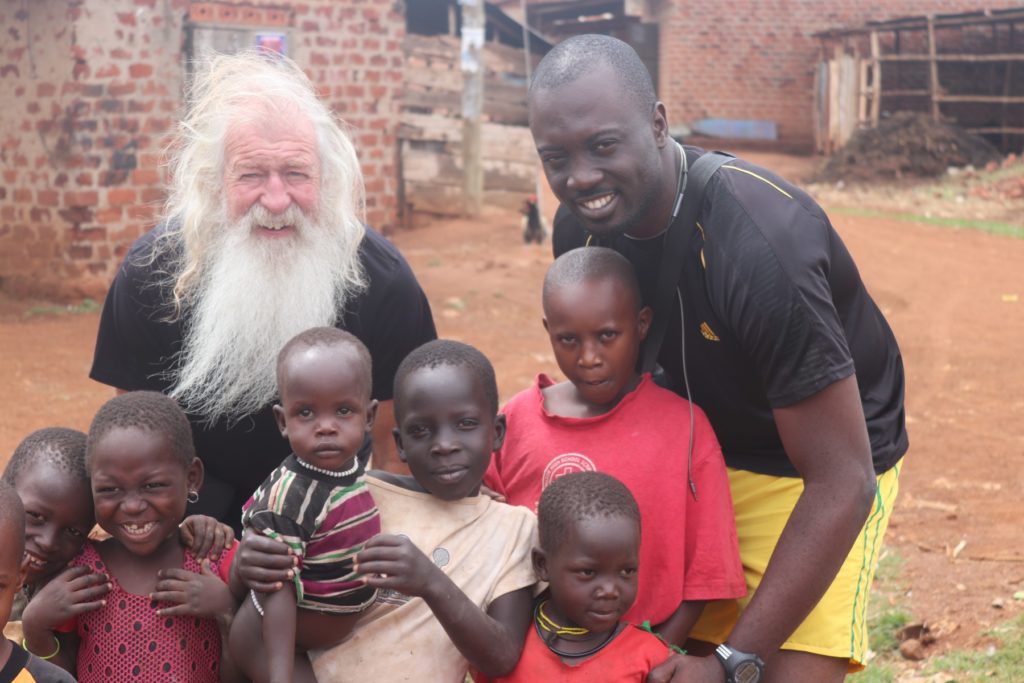
Chris, some kids and myself 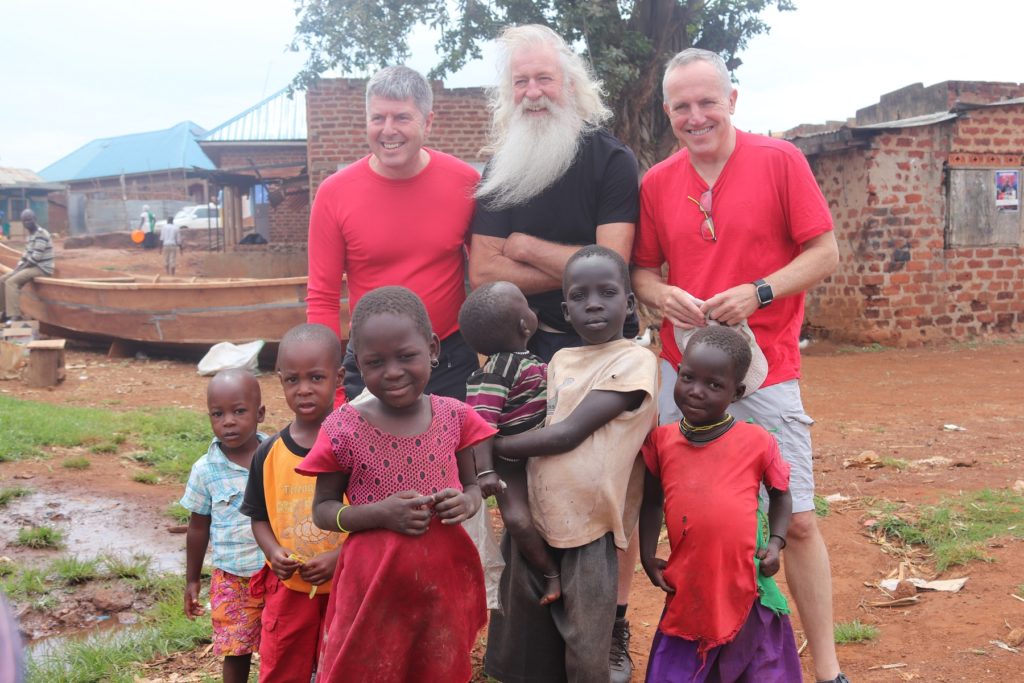
My friends and the kids 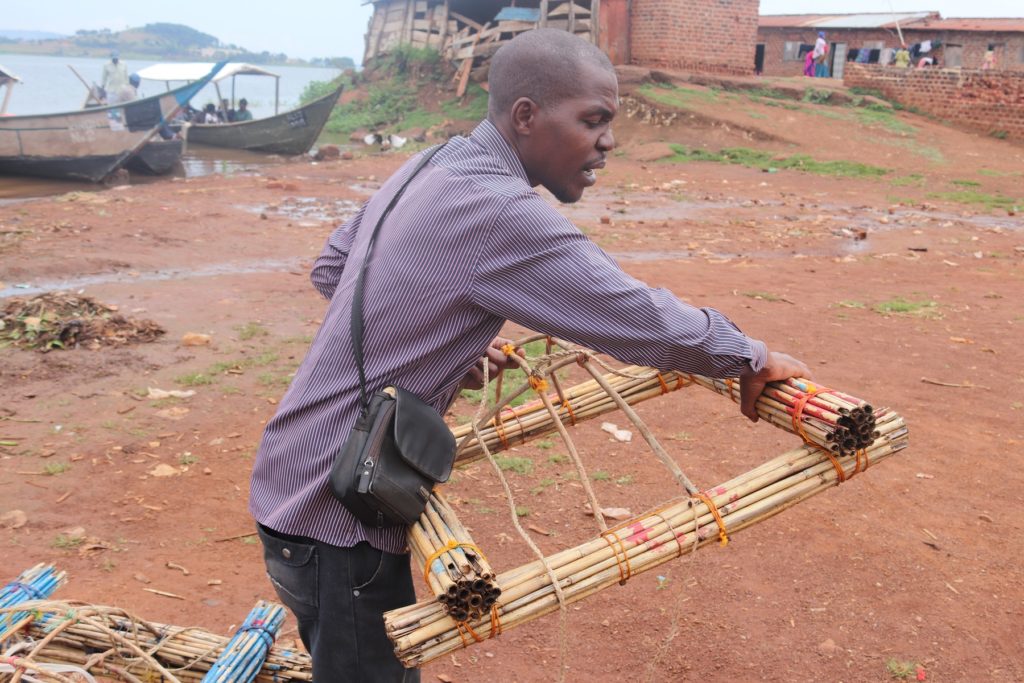
Joe showing us how to use this equipment 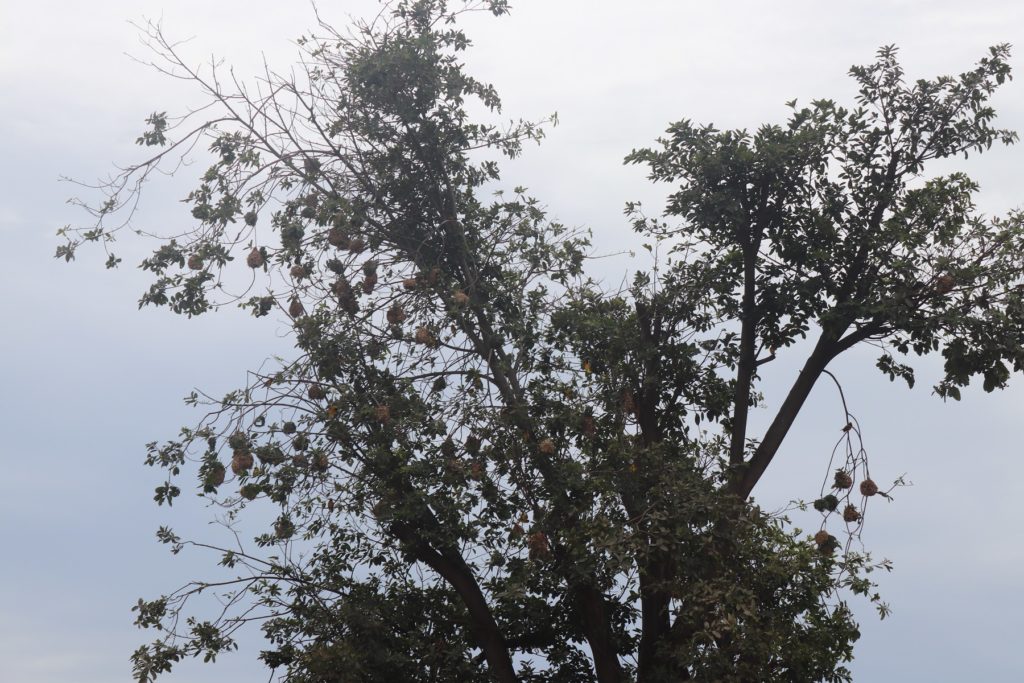
See some birds and their nests on the River 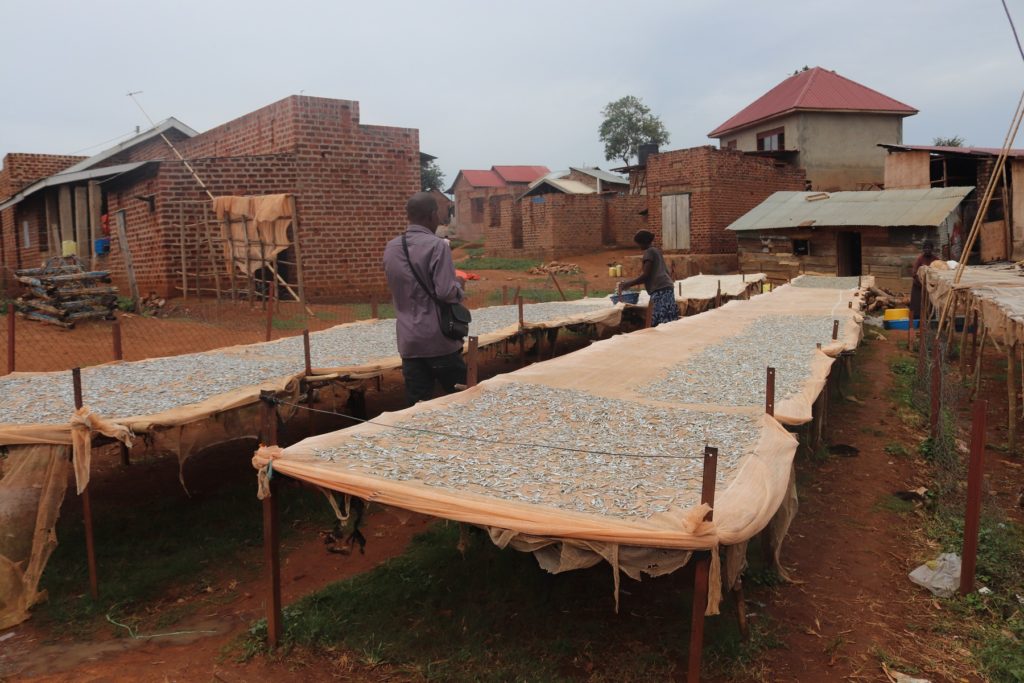
The Silver Fish being dried 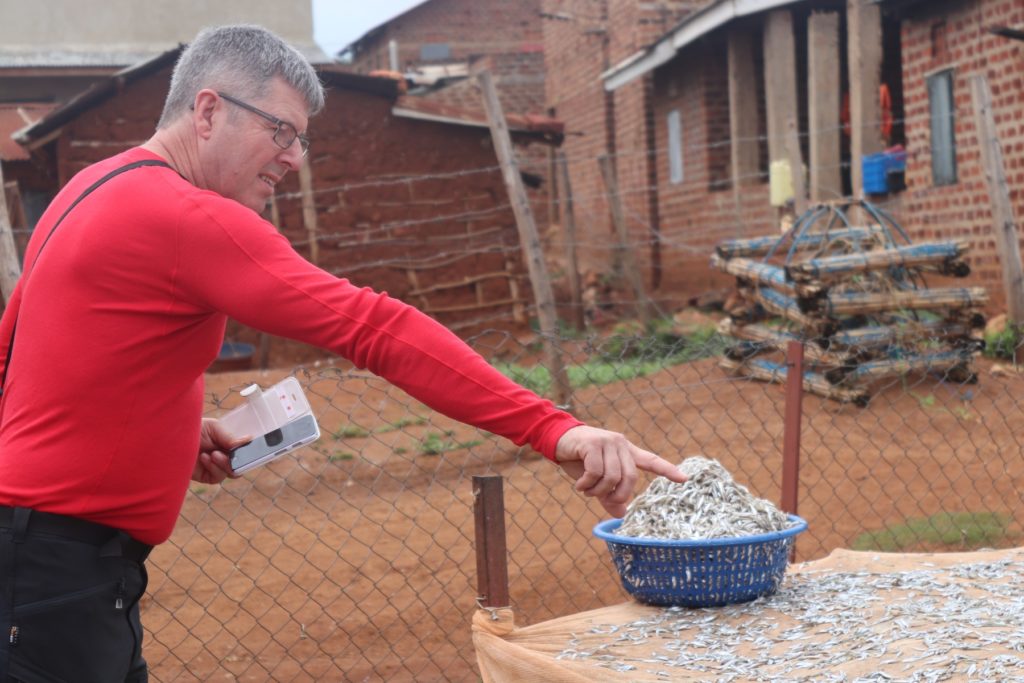
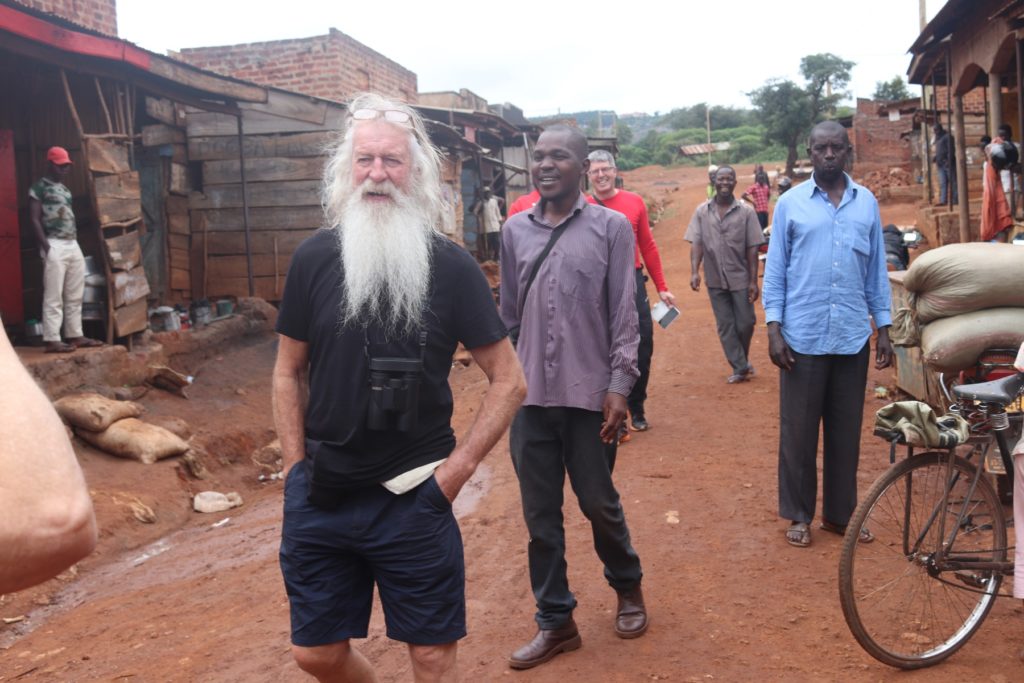
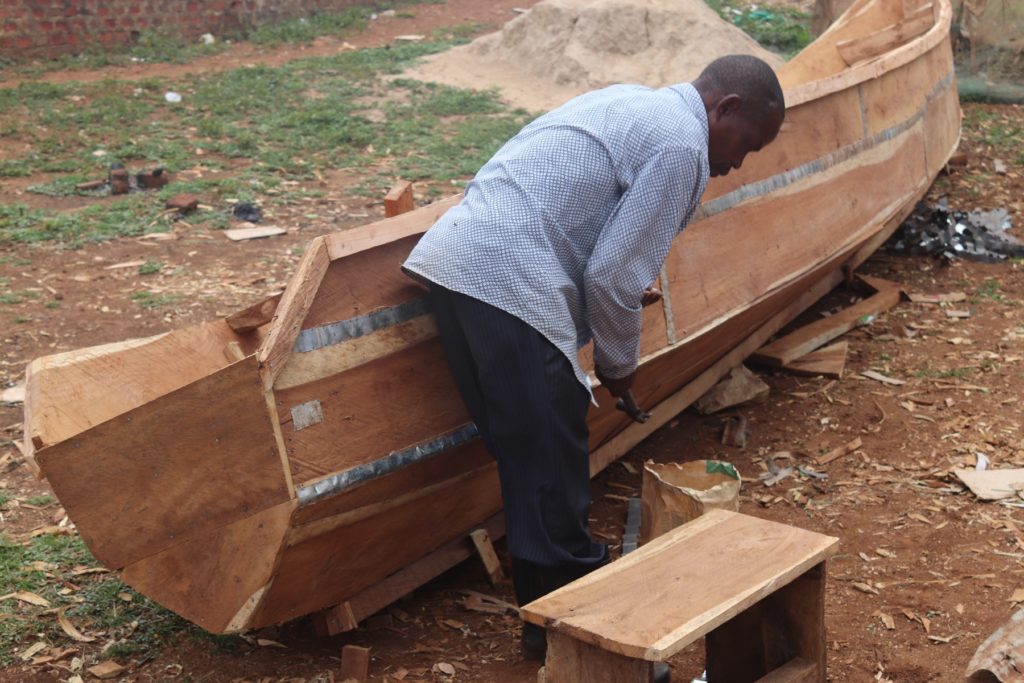
The locals here also do boat building 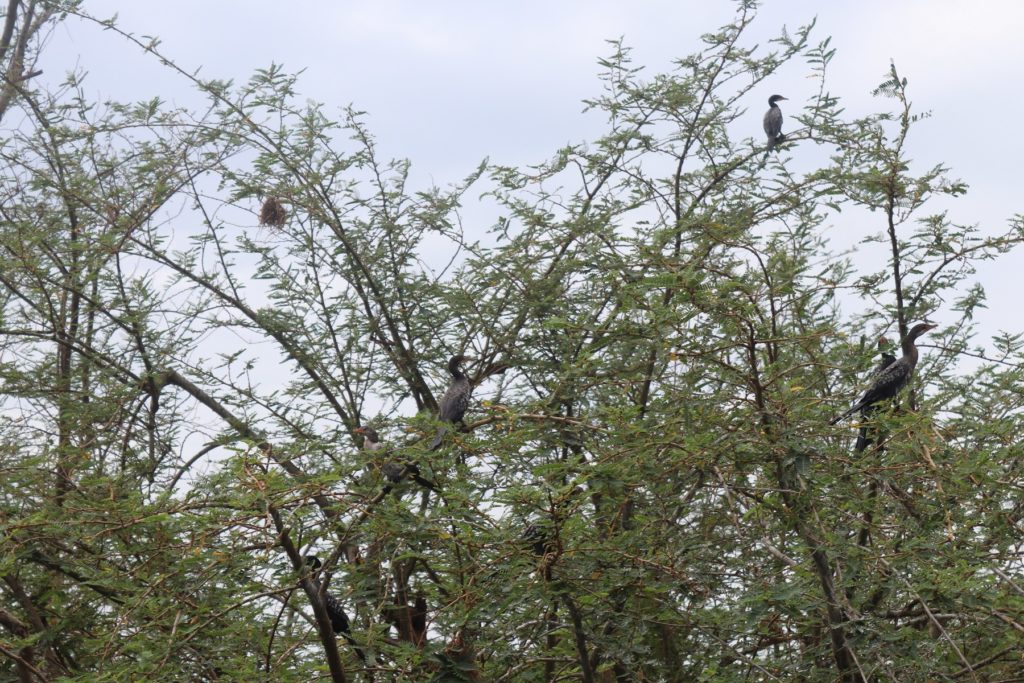
Some birds on the tree 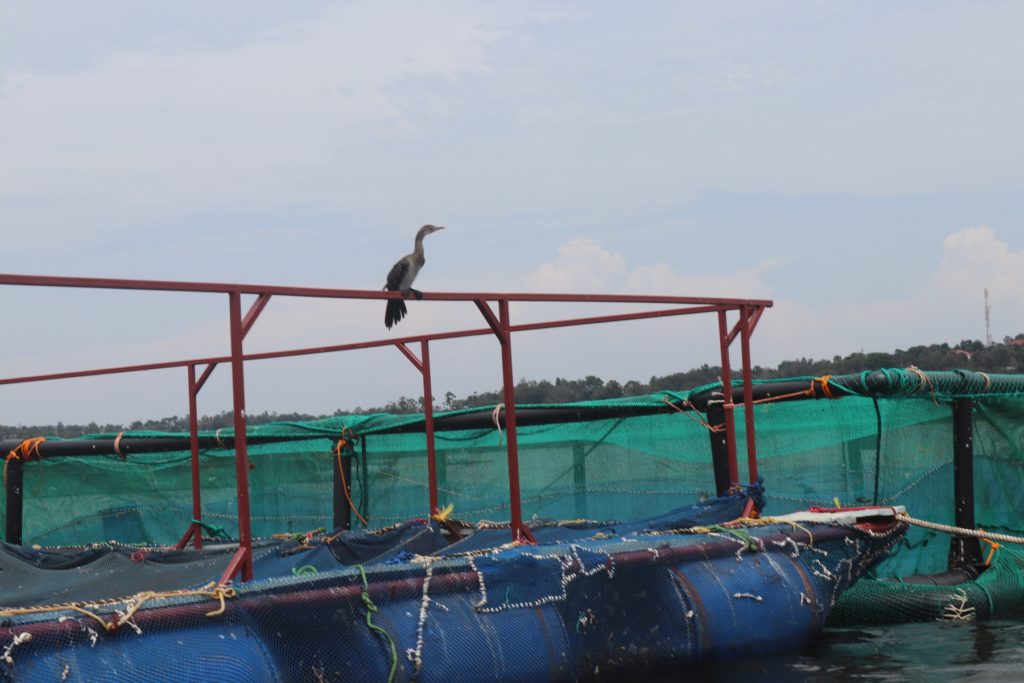
Aquaculture on the Lake Victoria 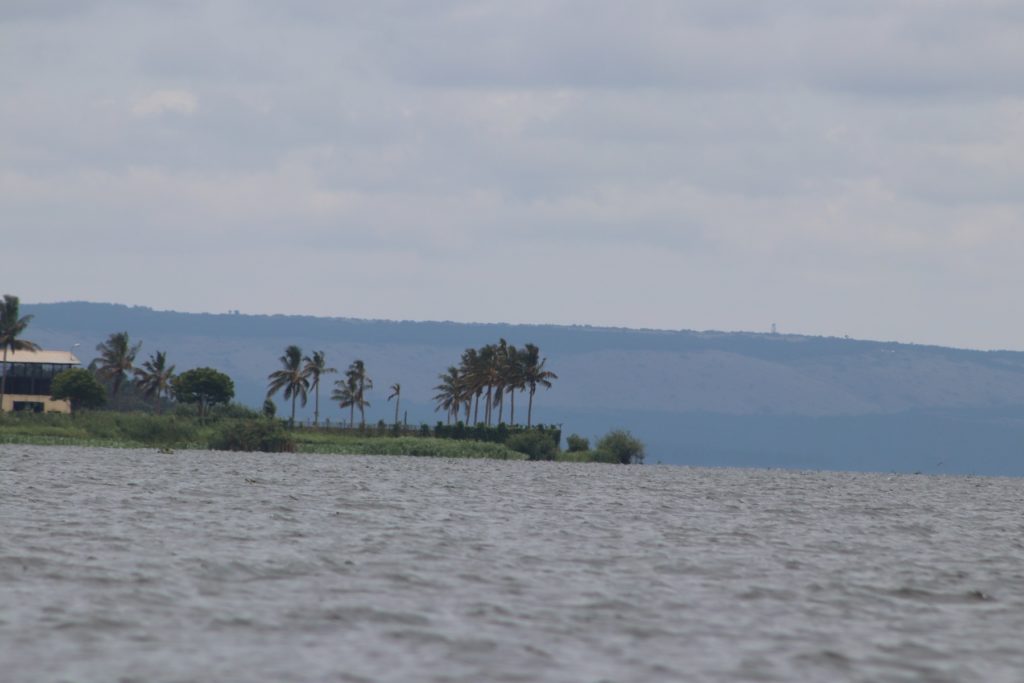
A beautiful scene on the Lake 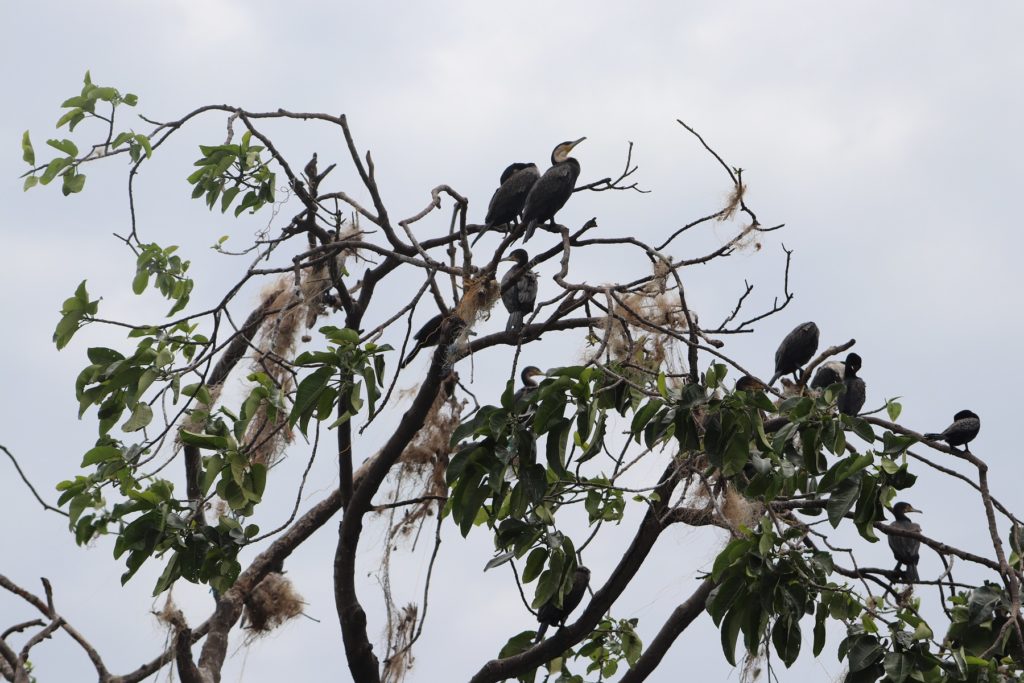
Birds on the Lake Victoria 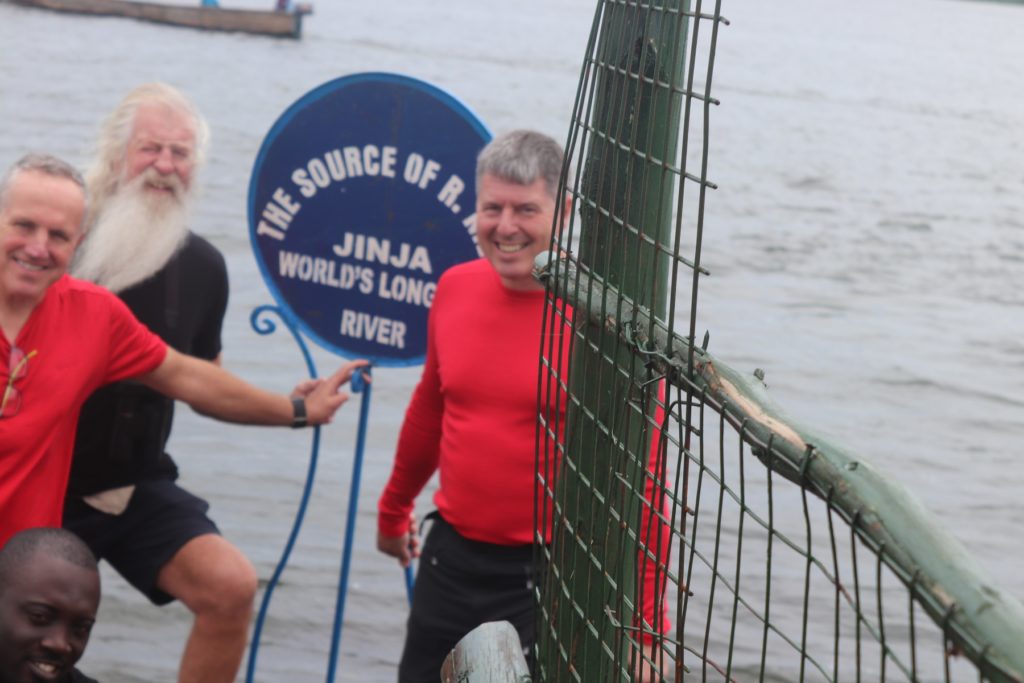
My friends and I 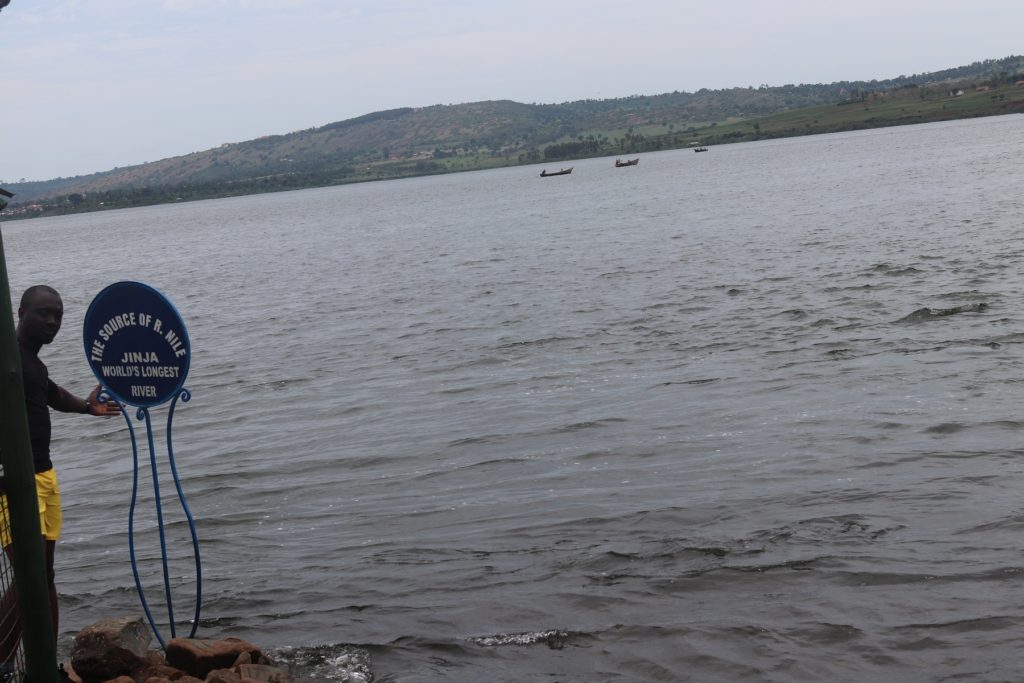
Me at the Source of the River Nile 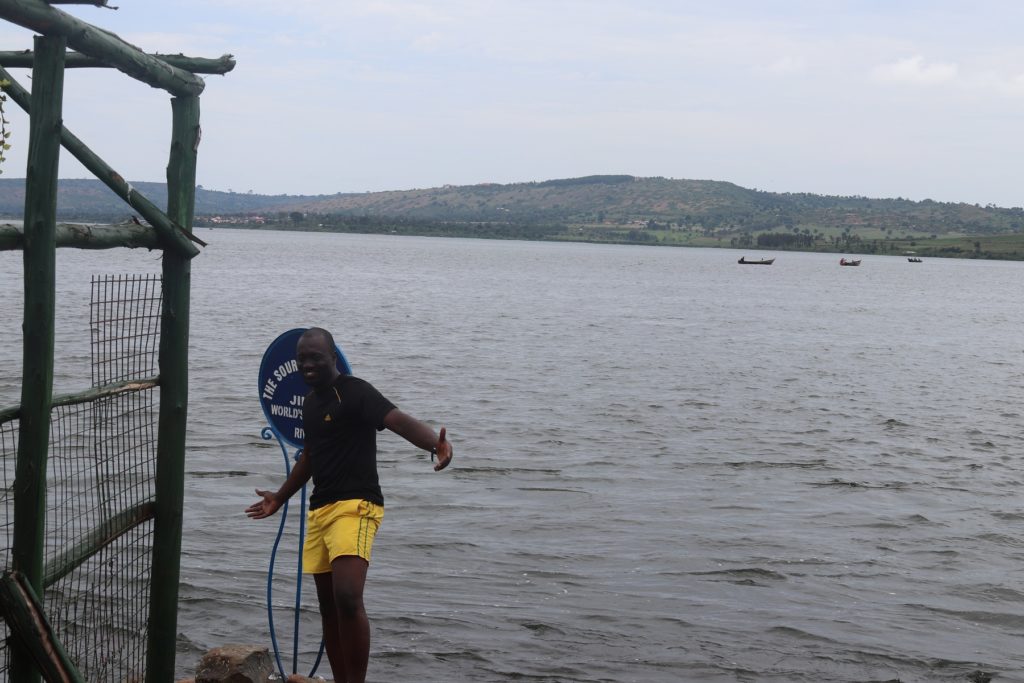
With some swags 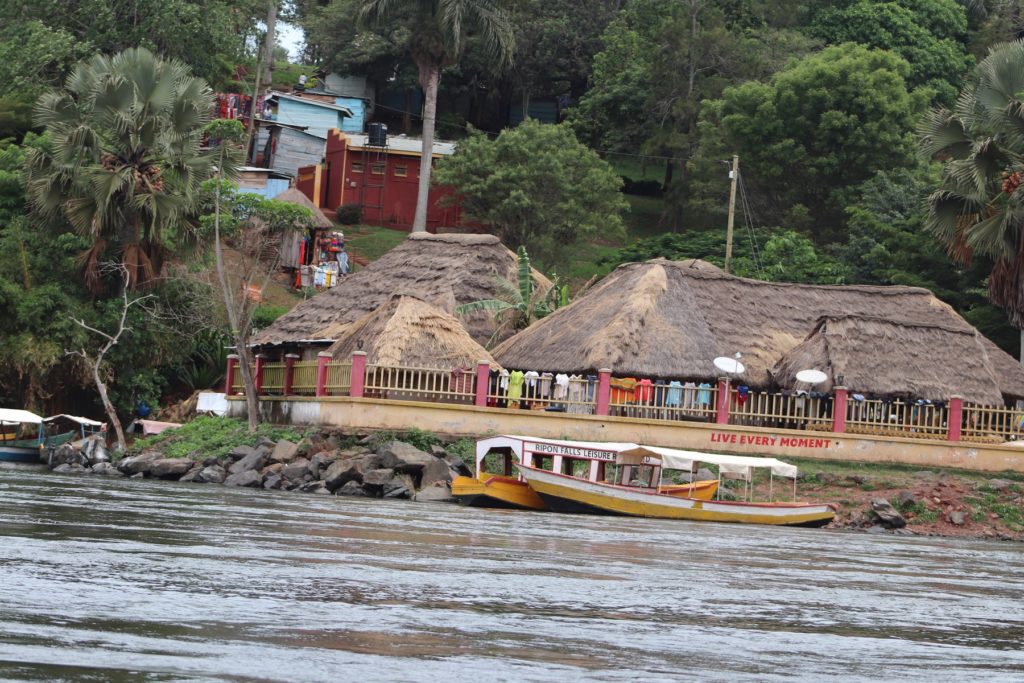
The Bank of the Nile River 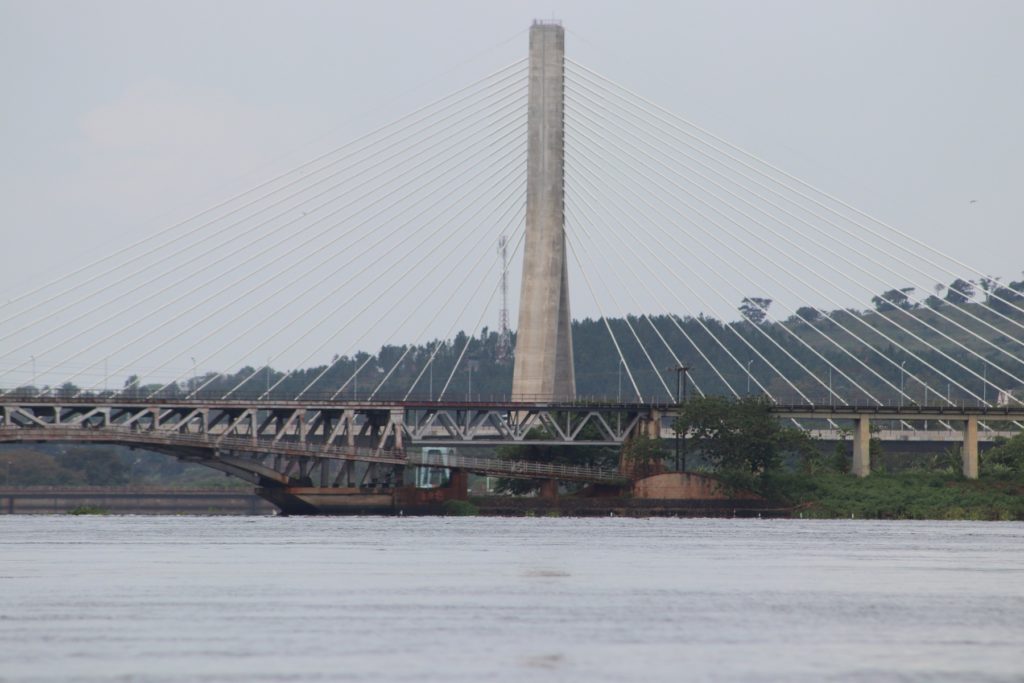
A view of the New Jinja Bridge from the River Nile 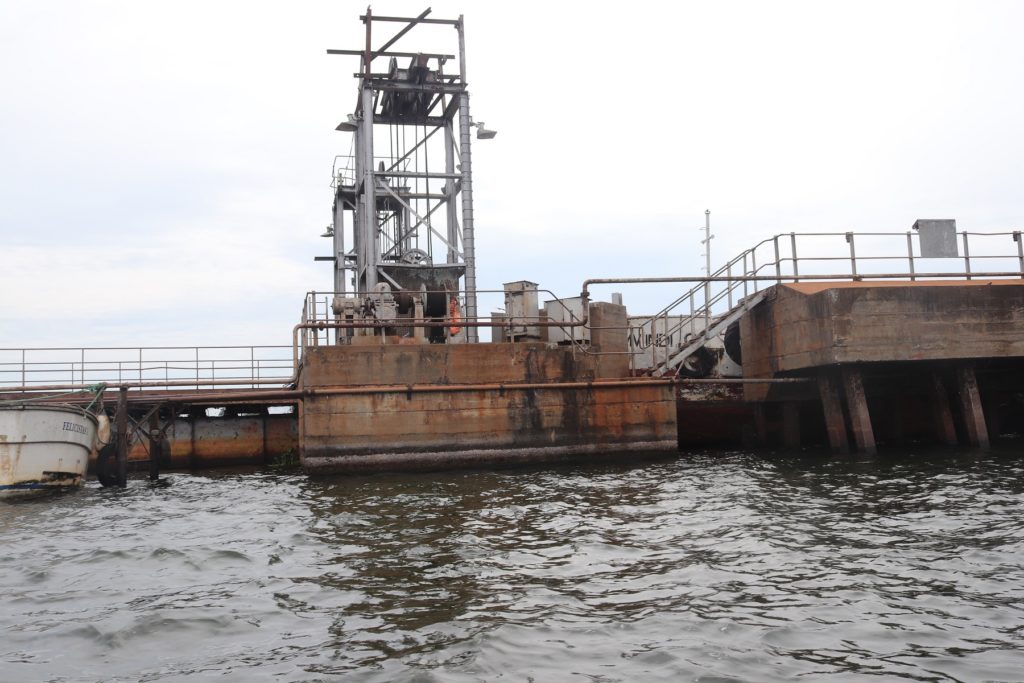
Ships in the Lake Victoria
Chris, the tourist and his friends had a number of other places to visit but must get to their hotels before making those trips later in the afternoon. They had bus they had hired for the entire exercise. I decided to join them to town where I could get public transport back to Kampala. They were also patient to wait for me to pack my bags at my hotel room at Roziz Inn.
I am grateful to Roziz Inn’s Christopher Maiso Tenderi and Amos who made sure I had a good time and I recommend their hotel – they can be reached on +256 (0)393275951 or on Facebook @rozizinnug. I will not also forget to thank Joe and Geoffrey. Geofrey Magoola who can be reached on geoffreymagoola@yahoo.com or could be reached on +256 (0)783 503 396 or +256 (0) 755 451 102. His services include touring the River Nile, sport fishing, bird watching, monkey tracking etc. I got a vehicle and left back to Kampala, the capital.

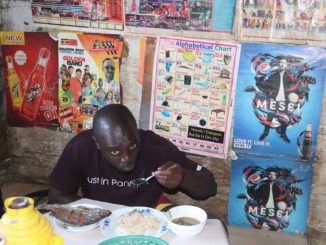
Be the first to comment